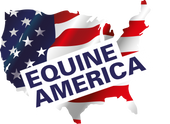Moody Mares!

Have you ever noticed your mares behaviour changed and wondered why? Lets have a look at the hormonal reasons a mare might get a reputation for being moody!
Mares have evolved to be seasonally anoestrus, also known as long day breeders. This means they stop cycling through the winter and once the days get longer (more daylight) and the weather warmer their cycles return. The restart of cycles in the Spring is known as the transitional period. In the Northern Hemisphere mares generally cycle from April to October to coincide with the better nutrient supply from the grass and warmer weather to raise their foals. Mares have a gestation length of around 340 days, so foals tend to be born in the Spring and Summer. I hear you ask, how do Northern Hemisphere Racehorses have their birthdays on 1st January, the dates doesn’t add up?! By increasing the photoperiod (daylight) using lights we can artificially start the transition period earlier in the year so that breeding can start earlier, with the aim of having foals born as close to 1st January as possible (but not before!). This technique has been used for decades, with it being published in scientific literature as far back as 1947!
The increase in daylight in the Spring, acts on the pineal gland.
Mares in the transitional period may show prolonged or irregular seasons. All mares are different, but some can be particularly ‘mare-ish’ in their behaviour, being stroppy or difficult to handle.
Hormones often get blamed for behaviour, but it isn’t always the problem. Underlying causes such as gastric ulcers or musculoskeletal pain can also cause a change in a mare’s behaviour. Keeping a diary of any behaviour changes can be helpful as mares usually cycle every 21 days so a pattern may emerge. If your mare is showing unwanted behaviour, we would recommend discussing this with your Vet.
No More Moods is perfect for temperamental mares as it supports the mare’s natural oestrus cycle by encouraging regularity and providing extracts of ingredients which have been traditionally used to support hormone balance. Chastetree extract (aka Monks Pepper or Agnus Castus) support hormonal balance. Magnesium helps to muscle tension. Vitamin B1 is important for normal nerve function. No More Moods is not just for mares though (read more about this in our next blog!!). No More Moods is not suitable for use in pregnant mares or breeding stallions.

